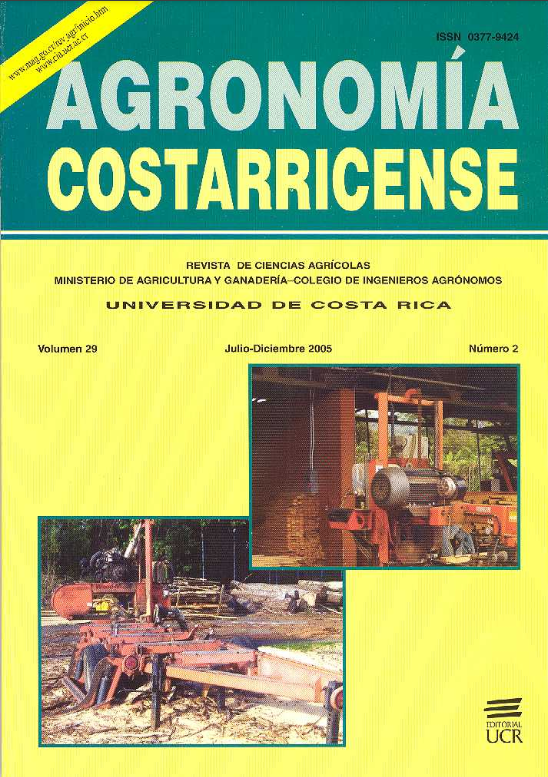Abstract
A critical analysis of Costa Rica’s agricultural development during the last twenty-five years is presented. Agricultural diversification, promoted in the eighties, allowed to widen the exportable offer and reduce the economic vulnerability of traditional products, such as coffee and bananas. The challenges of the global economy, as well
as the establishment of commercial treaties with many countries, now make it necessary for the country to promote agricultural exports with greater added value, which in turn demands modernization and productive re-conversion, since the present model is exhausted. We must improve substantially the good and services we offer. For this purpose, aspects such as the trademark of a country with democratic tradition, respect for labor rights, as well as sound environmental management practices, should be publicized. As a key tool for the incorporation of greater added value to our agricultural production, we must promote investment in research and development, which historically has been scant (0.4% of GDP). Since in Costa Rica the state has proven chronically incapable of promoting science and technology as tools for our development, a stimulus to private investment, as well as a strengthening of its alliance with state and universities, are proposed. The convenience of strengthening food self-sufficiency, and of small and middle-size enterprises playing a more active role in agro-exporting, is analyzed. As regards the Free Trade Agreement between the United States and Central America and the Dominican Republic, the necessity of approval by Costa Rica is addressed, along with the convenience of the immediate establishment of a parallel work-agenda, to strengthen those sectors which are ending up harmed by the treaty. Several sections of the article comment upon the lack of political leadership that the agricultural sector has suffered during the last twenty years, which has resulted in lack of planning congruent with clear objectives and goals in the mid- and long-term, as well as the lack of commitment to resolve limitations. It is concluded that Costa Rica can not, and must not, relegate agriculture to a second-rate condition.
##plugins.facebook.comentarios##

This work is licensed under a Creative Commons Attribution-NonCommercial-NoDerivatives 4.0 International License.
Copyright (c) 2024 Agronomía Costarricense


